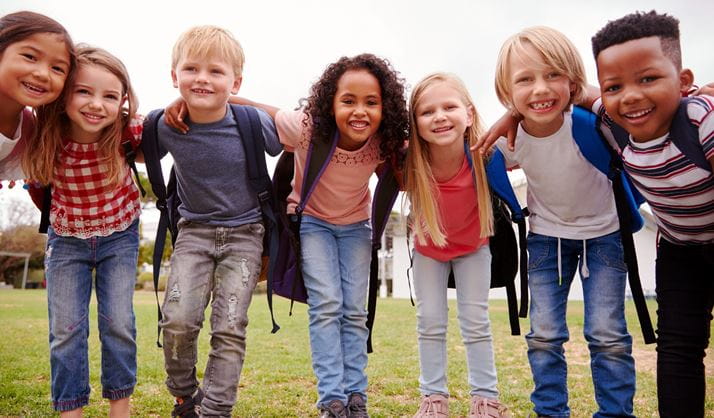Understanding: It Starts With a Conversation
6/29/20
As a school enrolling students from all backgrounds and from all over the world, Laurel Springs knows what it means to embrace diversity. We understand each child and family is different—in the ways of learning as well as cultural situations. In light of this, we want to share a few universal observations about the education process, and of course, some helpful resources for learning about the many dimensions of racial injustice.
Where to start
We’ve all heard that it’s important to take care of ourselves before we take care of others—put the oxygen mask on ourselves first before we help our children. Educate yourself on the issues first. Identify the prejudices we currently have and examine how the young impressionable minds that look to us for guidance absorb them. When we let fear dictate what we say and do, children learn this trait and follow suit. When we repeat misinformation, we’re doing everyone a disservice. When we initiate an open conversation on difficult topics it helps foster open communication. It also helps to clear up some of the misunderstandings already formed from media coverage or hearsay—or at least it’s a start.
What to say
While there’s no concrete script for the right and wrong thing to say to your child about unrest and uncertainty, there are some universal truths to follow:
- Seek to understand. Assumptions and jumping to conclusions is the quickest way to misinformation. Make sure you fully understand the question before you attempt to answer. It’s okay to say you don’t know or that you’re still trying to understand the issues yourself. Taking the time to learn about them together could also help strengthen your connection and open the lines of communication.
- Keep the lines of communication open. Having these discussions with your child may not be easy, but displaying an interest in learning encourages moral concern. And, understand that many families’ lived experience forces them to have these conversations every day—not having to do it should not be a reason not to try.
- Encourage empathy. Even by having these conversations, you’re showing that talking about it is important. Hopefully, this inspires your child to embrace differences and continue the conversation with others, especially if they witness something that doesn’t feel right. When they feel comfortable talking about the tough issues, they may be the one who calls out an injustice when they see it.
- Keep learning. The list of resources available to parents, teachers, and students seems limitless—what is included below is only a jumping off point.
Where to go from here
There’s an entire world wide web full of books, articles, movies, websites, teaching guides, and literature available on the subject of talking to kids about race. Build on this list to grow your knowledge base. Please note that this is a partial list, and Laurel Springs is not affiliated with the sources below.
Related Organizations
Equal Justice Initiative
American Civil Liberties Union (ACLU)
Campaign Zero
Know Your Rights Camp
NAACP
Books For Kids
Something Happened in Our Town by Marianne Celano, Marietta Collins, and Ann Hazzard
Other notable picture books
A Good Kind of Trouble by Lisa More Remee (Middle Grade novel)
Other notable books for young readers
The Hate U Give by Angie Thomas (Young Adult novel)
Other best-selling books for teens
Resources For Adults
Books:
- So You Want to Talk About Race
- White Fragility
- The New Jim Crow
- Why Are All the Black Kids Sitting Together in the Cafeteria?
- Ghosts in the Schoolyard
- The Fire Next Time
- Between the World and Me
- Algorithms of Oppression
- Articulate While Black
Podcasts:
- (Episode) NPR’s Lifekit Talking Race with Young Children
- (Episode) The Longest Shortest Time How to Not (Accidentally) Raise a Racist [includes book recommendations]
- (Episode) Good Ancestor Podcast “Episode 014: The Conscious Kid”
Resources For Teachers:
Teaching for Black Lives, Edited By Dyan Watson, Jesse Hagopian, Wayne Au. Rethinking Schools.
Black Lives Matter at School, website of the national coalition organizing for racial justice in education.
2020 Curriculum Resource Guide, BlackLivesMatteratSchool.com
Creating the Space to Talk about Race in Your School (PDF), National Education Association
Additional Resources:
NPR: This List of Books, Films, and Podcasts About Racism Is a Start, Not a Panacea
Instagram: @theconciouskid
Share on social media
